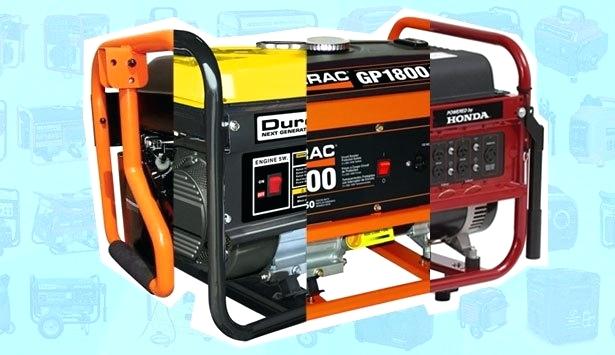When the power goes out after a storm or for some other reason, a generator is an invaluable item of equipment that can help normalize your life again. You can generate electricity with a new generator, but at the same time remember that regular maintenance and maintenance of such equipment are very important.
If you are negligent in the safety of the generator, it can prove to be expensive. By not doing regular maintenance, you will not be able to use your generator properly. Misuse of generators can lead to deaths from gas like carbon monoxide (CO), which is similar to poison. According to the National Institutes of Health’s Safety Guidelines, carbon monoxide can kill you within 5 minutes if the level is high enough
Generators Safety Tips
Here are the most important safety tips to follow and it can help you-
Read the manufacture’s manual
At the time of buying the generator, the generator company also provides a manual. If you have any questions or concerns about using the generator, you can check on the manual.
Check the leakage
The exhaust on a generator gets quite hot and has the potential to ignite flammable liquids. Don’t risk it – make sure there are no leaks from the generator before you start it up.
Never operate inside the home
The reason for this is that the generator emits carbon monoxide gases which can be deadly if you are in the same enclosed space. Also, never partially or fully cover the generator for the same reason. Always make sure the area is well ventilated and away from where you’re staying.
Refueling when generator cools
Gasoline spread over hot engine parts can cause a fire. The risks of injuries during refueling in the engine after cooling are also reduced.
Store properly Stock of gas or fuel
When you observe that you will require to use the generator for a long time, you want more fuel near you. For safety purposes, you place it in a container in a cool and well-ventilated place.
solid surface
When using a generator, place it on a solid and clean surface, such as an MDF board. This prevents sand and dust from being sucked inside the generator and blocks gears and filters.
A safe distance from any water source
It is important that you have made sure that in the unfortunate event of a fuel spill, your generator is placed away from any water source to avoid the probability of serious pollution. Water can also cause generator malfunctions, so keep the generator in a dry place.
Generator refueled safely
You do not want your generator to run out of fuel, so make sure that the tank can be reached and refueled safely, without risk to you, your customers and the public.
All ground-based cables are fully covered
You can reduce tripping hazards by covering all ground-laid cables. All ground cables must be properly covered.
Don’t operate in wet condition
Generators usually generate strong electric currents. To avoid the danger of electrocution, never turn on your generator in a wet condition. If this wet or circling area looks wet then you need to take care of this. Be convinced to shield your generator from exposure to rainfall and storm.
Generator’s Maintenance
Periodic inspection and maintenance of generator parts, the connection of cables and batteries are needed. Air intake systems, fuel systems, exhaust systems, electrical systems and control systems need to be checked within a schedule. If any injury is identified, replace it quickly. With regular maintenance, you can use your generator properly for a long time.
Regular maintenance inspection of the generator can reduce the occurrence of hazards. For generators, the exhaust, fuel, engine, and DC electrical systems need to be closely monitored.
Generator Need Lubrication Service
The oil level and quality should be checked using dipstick in the generator at regular intervals. Generators need regular maintenance for long life.
Cooling System Inspection
It is important to periodically check the level of coolant in the generator. The radiator should be cleaned properly without damaging the wing.
Manage Fuel System
Maintain the highest level of energy of the generator by protecting the fuel system of your generator. Fuel issues may arise, which will cause your generator and pump to fail. Regular maintenance of the fuel system of the generator is very important as the generator operates from the fuel itself and provide electricity.
Testing Batteries
Battery testing and cleaning are necessary to give sufficient starting power. The terminals are washed with baking soda and water solution and coated with petroleum jelly. The specific gravity and level of electrolytes are checked. If ever you find the electrolyte level is low, fill with distilled water.
Exhaust System
All connection points, welds, and gasket are recommended to be properly checked for any leaks and should be repaired immediately.
Conclusion
In this post, we talked about the maintenance and safety tips of generators. This blog helps you understand how to manage generator operation safety and maintenance. If you have any questions related to any type of generator, you can contact our EO Energy Generator Services team. Our expert team finds a solution to your problem as quickly as possible.









